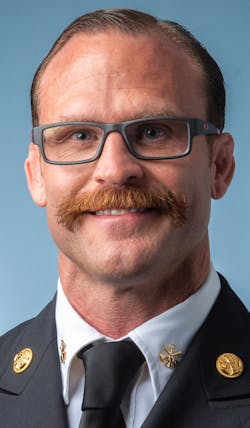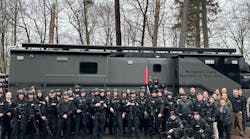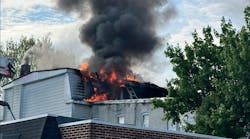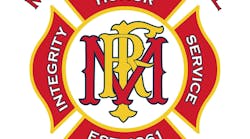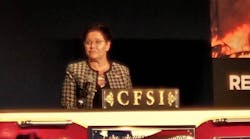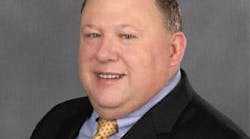A few months ago, I was responding to an alarm at a 13-story apartment building. When we arrived on scene, the call was upgraded to a structure fire. We were second due, and our job was to supply the standpipe system and make our way to the floor below the fire. Because the fire was on the 10th floor, we were to go to the 9th floor, per our standard operating guideline (SOG). Therefore, we supplied the standpipe and got off the rig to make our way inside.
Right off the rig, I noticed occupants coming out of the front of the building at a rapid pace. As you could imagine, this sped my thinking. Knowing that the occupants are older, have a difficult time with day-to-day activities, and are in failing health, I thought that if a room on the 10th floor is actually burning, or even if an IDLH atmosphere is present, then we need to perform a quick search. However, our job as the second-due engine was to bring all of our high-rise equipment with us, including hose packs, extra cylinders, a search rope, the high-rise bag, various tools, etc.
When I saw the occupants moving out of the front door at a quick pace and that the first-due engine was still getting their high-rise equipment together, I decided to step inside the building to peek in the stairwell. I wanted to see if there was visible smoke and determine how many occupants were exiting via the stairs. As soon as I looked in the stairwell, I saw occupants moving down the stairs. They indicated that there was a fire on the 10th floor. I then looked at my firefighter and told him “Let’s go.” As soon as I said this, my 22-year-old firefighter, who is incredibly talented, was gone. He was moving so fast that I was having a hard time keeping up. I caught up with him around the fourth floor and thought to myself, “Pace yourself, youngster; we have a ways to go.”
I gave him the command to ascend the stairs knowing that I needed to go back to the rig and grab all of the high-rise equipment. I was so emotionally connected to the look on the occupants’ faces and their urgency that I felt that it was more important to get to the floor and try to remove the occupants. Knowing that the building had sprinklers helped me make that decision. However, it still was not the right decision because I DID NOT do my job as the second-arriving engine officer. The entire trip up to the 10th floor, I kept telling myself to go back and get the equipment. But the more occupants I ran into exiting down the stairs, the more emotionally connected I became. I knew better than this.
We made our way to the 10th floor, masked up and made entry. By that time, the first-due engine was connecting its 2 ½-inch line to the standpipe in the hallway. When we made it to the fire room, the sprinklers had put the fire out, but there was a good amount of smoke still being produced. So my firefighter and I began forcing entry into rooms to ensure that no one was trapped. Thankfully, all of the occupants had made it out OK.
The discipline process
Following the incident, and after much discussion between my superiors, I was written up for my decision to go to the 10th floor without the proper equipment and to try for a rescue—and rightfully so. When I met with the deputy chief of operations and my battalion chief to review my discipline form, I listened intently and told them that I agreed with the write up, as I did make a mistake and should be held accountable, no matter my justification. As an officer, we all have to make split-second decisions and live with them. Sometimes they’re right; sometimes they’re wrong. My crew and I could have saved 10 people that day, but that DOES NOT discard the fact that I did not follow the SOG. Even if we did make a save, I still should have been disciplined.
The most exciting part of the discipline process was that an acting battalion chief (he’s a captain just like me) was the one pushing for me to be written up. I use the word “exciting” because the acting battalion chief witnessed a mistake made by one of his “brothers” with the same rank and was still committed to doing the right thing. You see, when people make a mistake, they sometimes say, “Come on man, we all make mistakes, don’t write me up. I thought we were brothers.” Everyone likes to throw out the “brotherhood” card when it’s convenient for their situation. Well, true brotherhood is holding each other accountable at all times. If that acting battalion chief did not say something to me and my superiors about the mistake, I would have questioned his leadership abilities and his ethics. He could have easily looked the other way, but he did not because that would not have been the appropriate action to take as a leader. Simply put, he had the guts to do the right thing. That’s the kind of person I want on my leadership team. If I ever have the chance to lead on a large scale, he will be one of the first to join the team because he exemplified true leadership in his actions. He didn’t care who I was, what my rank was or that we were friends. He cared about the mission of the fire service.
When my write-up was finalized, I called the acting battalion chief on the phone and thanked him for holding me accountable. It’s hard to believe that someone would say that, right? Well, for me, it wasn’t. I looked in the mirror after that fire and knew that I had made a mistake. It ate at me for every second of every day for over a month until we had the incident critique. And when I walked into the critique, I saw everyone looking at me and the acting battalion chief to see what our interaction was going to be like. I walked right up to him and shook his hand just like I did everyone else in the room. I made it a point to stand next to him during the entire meeting.
Guys were then anxiously waiting to hear my reasoning for what I did on scene. It was finally my turn to speak, and I told everyone that I DID NOT do my job as the SOG states. I told them that the write-up was 100 percent justified. I went on to tell them, “Please don’t look at my firefighters or my driver as the ones who made the mistakes. I was solely responsible, as they did what I ask them to do.” I apologized for letting them down and hoped that we could move on from there. The fact that I had screwed up wasn’t the issue now. The issue was how I—the guy that preaches accountability to organizations all over the world—was going to respond when I was the one being held accountable this time.
For me, it was an easy task to stand up in front of my peers and tell them I made a mistake because as I looked around the room, I remembered some mistakes every one of them had made during their career. And I think they remembered, too. For a brief moment, we were all thinking the same thing: No one is perfect, and everyone makes a mistake. Once you get this through your ego, you will become a much better leader.
Set an example
The point of this story is this: When you make a mistake, stand up and admit what you did so others don’t make the same mistake. News flash to all of you reading this: You have made plenty of mistakes on incident scenes, and you will continue to do so due to the complexity of the environment in which we operate. As an officer or a firefighter, you have to be willing to make the tough decisions based on the small amount of information that you have on a scene. If you make a bad call and get written up for it, do not say, “They wrote me up!” Stop using “they” as a scapegoat, and look at yourself in the mirror. It’s easy to place the blame on someone else, but it takes a real leader to stand up and accept the consequences. Learn from it, help others to learn from it, and don’t let it happen again. Any other way of doing business is embarrassing and a disgrace to this profession and the ones who have paved the way for us to be here today. Also, when you run into “they,” please introduce me to them since everyone who makes a mistake seems to know them so well. Next time, try replacing “they” with yourself and see how that fits.
